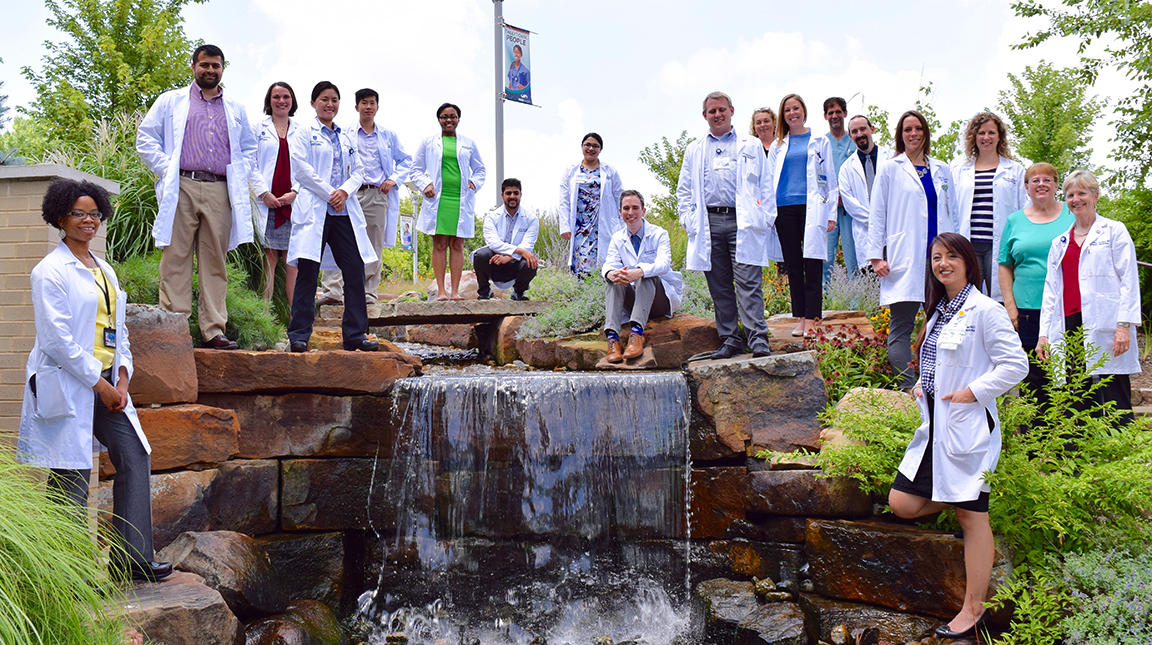SLU Family Medicine Residency Program Honored for Improving Racial Equality, Social Justice
ST. LOUIS – FOCUS St. Louis will honor the Saint Louis University Family Medicine Residency program as one of four organizations making a difference in the St. Louis community by improving racial equality and social justice.
The honorees were nominated by the public and selected by a panel of community judges for their commitment to promoting diversity and opportunity for all. Other honorees in this category include Sophie Bernstein, founder of Go Healthy St. Louis; The Ferguson Collaborative; and North Side Community School.
In 2016, SLU received a five-year $1.87 million primary care training and enhancement award from the Health Resources and Services Administration (HRSA) to train family medicine residents and medical family therapy doctoral students in a behavioral health curriculum.
Christine Jacobs, M.D., program director of the SLU Family Medicine Residency at SSM Health St. Mary’s Hospital, said training began in January for medical family therapy students and residents. The program will swing into full gear in July with day-long workshops in behavioral health and coordinated inpatient and outpatient behavioral health care for patients.
Jacobs also is interim chair and professor in SLU's department of family and community medicine.
“The SLU family medicine residency trains primary care physicians very intentionally,” Jacobs said. “The residency trains physicians to work as part of an inter-professional team to provide integrated health services for the community, to reach out to the local community agencies and schools, and to become active leaders in improving health care.”
The program places faculty and students from SLU’s medical family therapy program along with family medicine residents at Family Care Health Centers and SSM Health St. Mary’s Hospital, allowing medical providers to offer extended services in the outpatient and inpatient setting immediately when they identify a patient that could benefit from behavioral therapeutic interventions.
The city of St. Louis has tremendous health disparities, Jacobs said, with the African American population seeing higher rates of infant mortality, sexually transmitted infections and diabetes. One third of Family Care Health Centers’ patients are African American.
Fifty three percent of Family Care Health Centers’ patients live at or below poverty level and 38 percent of the patients are uninsured. Eight percent of the patient population does not speak English as a primary language.
“The SLU family medicine residents care for these patients with respect and compassion in a patient-centered medical home,” Jacobs said. “Given the shortage of primary care providers in the region, the family medicine residents have provided care to patients and families who would not otherwise receive it.”
The mission of the Saint Louis University Family Medicine Residency is to "develop clinically skilled, academically trained family physicians who are committed to practicing in an urban setting and improving the health of underserved families and populations."
FOCUS St. Louis’ 20th annual What’s Right with the Region awards celebration is May 11.
Established in 1836, Saint Louis University School of Medicine has the distinction of awarding the first medical degree west of the Mississippi River. The school educates physicians and biomedical scientists, conducts medical research, and provides health care on a local, national and international level. Research at the school seeks new cures and treatments in five key areas: cancer, liver disease, heart/lung disease, aging and brain disease, and infectious diseases.


















